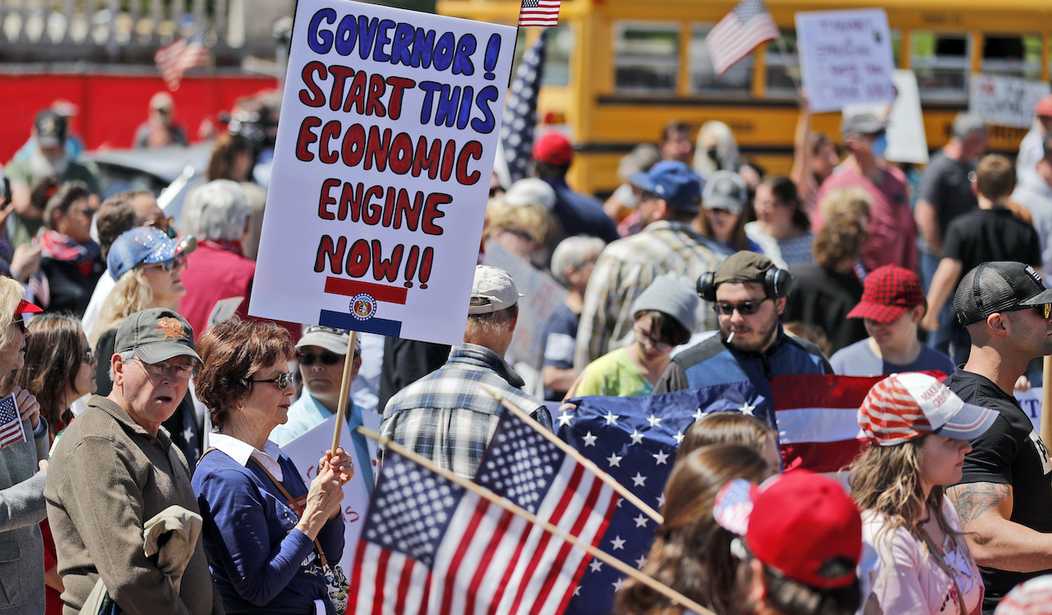MADISON — After several weeks of being told what to do, business owners finally had an opportunity to tell lawmakers, Gov. Tony Evers, and his bureaucrats what they need to do to get Wisconsin working again.
More so, they explained the pain they’re feeling on the ground during the Evers administration’s COVID-19 lockdown.
Dozens testified Thursday before the Assembly’s Committee on State Affairs, each detailing the difficulties they’ve experienced and the economic damage done to date. They fear much more destruction is on the way.
Many testified in support of Wisconsin Manufacturers and Commerce’s Back to Business plan, aimed at firing up the state’s stalled economy.
Liberals on the committee and Wisconsin Economic Development Corp. Secretary-designee Missy Hughes defended Gov. Tony Evers’ Badger Bounce Back initiative, a glacial-pace plan to re-open Wisconsin. And they continued to preach the religion of fear, insisting that re-opening too soon would lead to “tens of thousands” of dead, despite the fact that there have been 316 COVID-19 deaths in Wisconsin thus far.
Lockdown’s inhospitality
Greg Stillman, co-owner of Foremost Management Services, has operated hotels and seasonal rental properties in Door County for nearly 30 years. He provided the committee a snapshot of what the hospitality industry has gone through.
“A life’s work came to a screeching halt in a 48-hour time frame. That’s hard to swallow,” he said, testifying via Skype.
Stillman, who also serves as chairman of the Wisconsin Hotel and Lodging Association, said as many as 45 percent of hotels statewide have closed, many of those that are open have bare bones occupancy rates. That makes covering payroll and bills impossible.
Recommended
Troy Berg’s Dane Manufacturing has been in operation in northern Dane County for a century, but the future is looking less certain. In March, as the stay-at-home orders went into effect, the manufacturer saw sales decline 15 percent. This month, they’re down 30 percent, Berg told the committee. The company hasn’t had to cut staff, yet, but that’s because the federal Paycheck Protection Program has helped keep his 1,400 workers on the job. Berg said June looks worse than April, and June is when his federal “protection” is set to come to an end.
“We need certainty,” he said. That’s why he supports WMC’s Back to Business plan, he added. “It’s a straight forward approach that tackles the re-opening without throwing caution to the wind.”
Business plan
As Wisconsin Spotlight reported this week, WMC’s plan uses real-time data on the virus and available health care resources in the various regions of the state to assign risk scores to businesses. Unlike the Evers’ Safer at Home orders, WMC’s plan isn’t one-size-fits all. It takes into account population density, infection rates in communities and regions, and the number of health care resources where a business operates. Firms with higher risk factors would have to take more preventative steps to stay open, including reducing the number of customers allowed at the business.
Scott Manley, WMC’s executive vice president of Government Relations, told committee members that risk is different from community to community, region to region.
“Four of seven health care readiness regions in Wisconsin have more hospitals located in them than COVID-19 cases,” he said.
Rep. Marisabel Cabrera (D-Milwaukee) suggested the WMC plan would incorporate Evers’ Badger Bounce Back. Manley disabused her of that notion.
“Just to be crystal clear, representative, our plan would be a replacement of the Badger Bounce Back plan, which we think is flawed for several reasons …” he said.
Liberal committee members sneered at the WMC-led proposal, sounding disgusted that a business advocate would offer a plan to help Wisconsin’s economy become fully functional again.
“I want to point out that this is not legislation. This was not drafted by legislators. It was drafted by businesses,” said Rep. Christine Sinicki (D-Milwaukee).
Lives and livelihoods
Rep. Tod Ohnstad (D-Kenosha), asked business owners about the “dangers of going back to work too soon,” suggesting it could cause the “unnecessary deaths of tens of thousands of more Wisconsinites,” if the coronavirus cases spiked again.
Berg, the Dane County manufacturer, reminded Ohnstad that, as of Thursday, there were 316 COVID-19-related deaths in Wisconsin.
“At some point we have to deal with the difference between lives and livelihoods,” the business owner said. “If we let this go much longer than the end of May, we’re not going to be here for the 1,400 people who work here (at his manufacturing plants).”
WEDC chief Missy Hughes, who stood by Evers’ plan, compared re-opening to a relay race, asserting that it was critical all the players worked cautiously together so no one “dropped the baton.”
At one point, Hughes told committee members that customers willingly want their temperatures taken before they enter businesses. “They’re excited to see whether they have a fever,” she said, in what was arguably the most head-scratching comment of the day.
She was asked how WEDC came up with its determinations on what constitutes an essential and nonessential business. She had a difficult time answering the question, saying she doesn’t like the term “nonessential.” Hughes went back to the baton comment, and doubled down on Evers’ Badger Bounce Back plan.
With Wisconsin’s unemployment rate rapidly approaching 20 percent and businesses on the brink of closing for good, perhaps one Empower Wisconsin Twitter follower put it best.
“I want to go back to work!”

























Join the conversation as a VIP Member